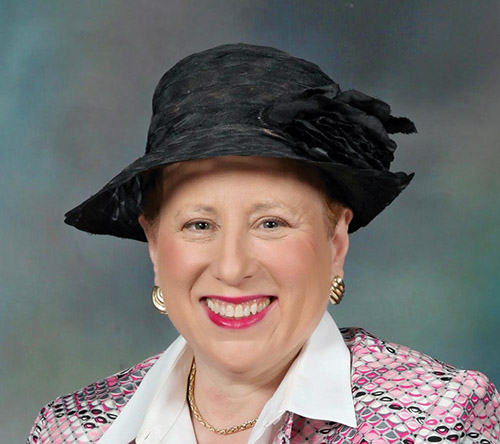

It was only last year that I casually asked a salesperson in a local Judaica store if they had a good selection of books written by women. I was promptly escorted to an array of gorgeous cookbooks glorifying challah baking, sumptuous holiday recipes, and elaborate table settings. While not discounting the importance of food in our culture, I wanted to find more meaningful and spiritual Torah content; perhaps a genuine sefer written by a woman.
It seems that my prayers were answered when Rabbanit Dr. Adena Berkowitz sent me her then newly published book titled “The Jewish Journey Haggadah.” Aside from wanting to break out in a chorus of “Hallelukah,” I scanned through the pages to find “a true sefer” written with a content I was so eagerly waiting for. This book is a thoughtful, Torah-rich manual to navigate the holiday of Passover. It was recognized all over the media, which included the New York Times. Now in its second printing, the book is more popular than ever before, as women are becoming a more integral part of Jewish learning.
The Haggadah opens with a color-coded instructional guideline that automatically instills a sense of ease in the reader. Categories such as background, suggestions of discussions, humor and kids reflect an inclusiveness and educational approach to the observance of this important holiday.
I appreciate her balance between the male and female participation in the Seder itself. This is best reflected with Rabbanit Adena’s addition of Kos Miriam alongside Kos Eliyahu. Kos Miriam is filled with water as a reminder of Moshe’s powerful sister (see p.14 in the Haggadah for further elucidation). She rescued him from the water, and later, God gave her the well of water that sustained the Jewish people throughout their journey in the desert. Later, the well of waters dried up, cementing Miriam as the only worthy person to have such a Godly validation. If you had to update Miriam into today’s society, you would refer to her as the ultimate “girl boss” influencer, certain to have millions of followers on her Instagram, Twitter and Facebook pages.
Adena teaches us a deeper view of charoset. More than just a resemblance of the mortar paste used to make bricks during our slavery in Egypt, she investigates further into the Talmud. In Pesachim 116a, Rabbi Elazar ben Zadok says that charoset is a religious requirement. Rabbi Levi says that it’s in memory of the apple trees where the Jewish women gave birth to their children hidden from the Egyptians.
Rabbanit Adena’s teachings go even further into the feminine side with the Maharal. He points out that the four cups, or kosot (a word that takes the feminine grammatical form) of wine, in a different interpretation of the four separate terms used in the Torah to describe lashon geulah, represent the memory of the four matriarchs—Sarah, Rivkah, Rachel, and Leah. We are taught that it was for the sake of the righteous women that the Children of Israel were redeemed from Egypt. The four cups, then, are a salute to the founding mothers of Judaism, with their individual importance to merit this explanation.
The Lubavitcher Rebbe, Rabbi Menachem Mendel Schneerson, glorified the women’s intense emunah with a musical point of reference. He said, “The men sang and then the women. The men sang…they sang their joy over their deliverance, they sang their yearning for a more perfect redemption—but something was lacking, something only a women’s song could complete… Miriam and her chorus brought to the Song at the Sea the intensity of feeling and a depth of faith unique to womankind.”
Adena lovingly elevates the mundane and seemingly worthless chore of pre-Passover cleaning. She refers to it as “Holy Housework!” with a meaningful reference. When Pesach was coming, Rabbi Levi Yitzchak of Berditchev would go and watch the Jewish women toiling, scrubbing, rinsing, and chasing after every crumb of chametz. Then he would lift his eyes toward Heaven and, just as on Rosh Hashanah we ask that the angels that are born of tekiah, shevarim, teruah and tekiah (the various shofar blasts) should speak on our behalf, he would say, “Master of the World! May it be Your will that the angels born of toiling, scrubbing, rinsing and tidying come before Your throne of Glory and speak on our behalf.”
“The Jewish Journey Haggadah” exemplifies exactly what Rabbanit Dr. Adena Berkowitz is as a Jewish woman, Torah scholar, teacher, psychotherapist, mother, wife and dear friend.
“One of the most amazing facts of our generation is the growth of women’s learning. This is probably the most Jewishly Torah-educated generation of women to date,” cheered Adena as I asked her about her own journey involved in “The Jewish Journey Haggadah.”
The Haggadah is available on Amazon and local Judaica bookstores.
Tobi Rubinstein is a retired fashion and marketing executive of 35 years who currently produces runway and lifestyle events for NYFW, specializing in Israel’s leading artists and designers. She is the founder of The House of Faith N Fashion, fusing culture and Torah. Tobi was a fashion collaboration and guest expert for ABC, Geraldo Rivera, Huffington Post, Lifetime, NBC, Bravo, and Arise. She hosted her own radio and reality TV series. Tobi is a mother, wife, dog owner and shoe lover.













